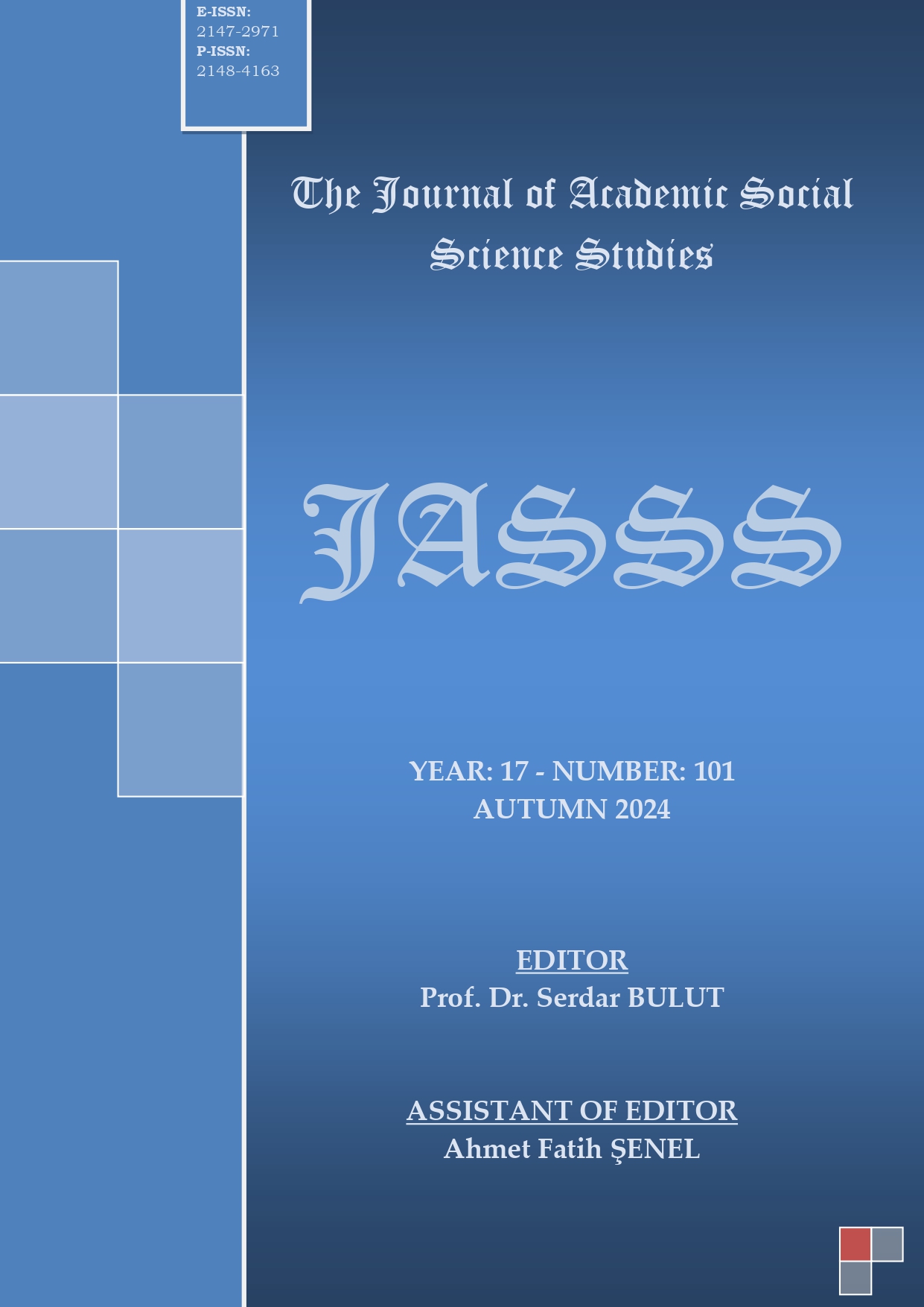EVLİLİK DOYUMUNU BELİRLEYEN BAĞLANMA STİLLERİ VE DUYGUSAL ZEKÂ: EVLİ ÖĞRETMENLER ÜZERİNE BİR İNCELEME
Author :
Abstract
Evli öğretmenlerin evlilik doyumlarını inceleyen bu araştırmada evlilik doyumunu arttıran ve azaltan duygusal zekâ ve bağlanma stilleri faktörleri incelenmiş ve aralarında anlamlı farklılıklar aranmıştır. Bu bağlamda Konya’nın Meram ilçesinde çalışan 110 kadın ve 89 erkek 191 evli öğretmen araştırmanın örneklemini oluşturmuştur. Araştırmada ilişkisel tarama modeli kullanılmış ve veri toplama aracı olarak Kişisel Bilgi Formu, Evlilik Yaşam Ölçeği, Gözden Geçirilmiş Schutte Duygusal Zekâ Ölçeği ve Yakın İlişkide Yaşantılar Envanteri (YİYE) kullanılmıştır. Veri analizinde T-test, Anova, korelasyon ve aşamalı regresyon analizi ile farklılıklar ve ilişkiler ortaya konmuştur. Araştırma sonucunda kaygı ve kaçınma bağlanma stilleri ile evlilik doyumu arasında negatif yönlü anlamlı bir ilişki olduğu yani kaçınma ve kaygı boyutu azaldıkça evlilik uyumunun arttırdığı tespit edilmiştir. Güvenli ve saplantılı bağlanma stilleri ile evlilik doyumu arasında pozitif bir ilişki bulunmuştur. İyimserlik/iyi oluş ve duyguların değerlendirilmesi duygusal zekâ alt boyutları ile evlilik doyumu ilişkisi yine pozitif yönlü ve anlamlı bulunmuştur. Kaygı ve kaçınma boyutları iyimserlik/iyi oluş/iyi oluş boyutuyla negatif, duyguların değerlendirilmesi ve duyguların kullanımı ile pozitif yönlü bir ilişki göstermiştir. Demografik değişkenlerin ise evlilik doyumu üzerinde bir etkisi olmadığı görülmüştür.
Evlilik doyumu, Bağlanma stilleri, Duygusal zekâ
Keywords
Abstract
In this study, which examined the marital satisfaction of married teachers, examined the factors of emotional intelligence and attachment styles that increase and decrease marital satisfaction of married teachers are examined and searched for significant differences between them. In this context, 191 married teachers, 110 women and 89 men, working in Meram district of Konya constituted the sample of the research. The correlational survey model was used in the research and the Personal Information Form, Marital Life Scale, Revised Schutte Emotional Intelligence Scale and Inventory of Experiences in Close Relationships (ECR) were used as data collection tools. In data analysis, differences and relationships were revealed using T-test, Anova, correlation and stepwise regression analysis. As a result of the research, it was determined that there was a significant negative relationship between anxiety and avoidance attachment styles and marital satisfaction. In other words, as the dimension of avoidance and anxiety decreases, marital satisfaction increases. A positive relationship was found between secure and preoccupied attachment styles and marital satisfaction. The relationship between the emotional intelligence sub-dimensions of optimism and evaluation of emotions and marital satisfaction was again found to be positive and significant.
The relationship between emotional intelligence sub-dimensions of optimism/mood regulation and appraisal of emotions and marital satisfaction was again found to be positive and significant. Anxiety and avoidance dimensions demonstrated a negative relationship with the optimism/mood regulation dimension, and a positive relationship with the appraisal of emotions and utilization of emotions. Additionally, there was not any relationship found between demographic variables and marital satisfaction.





